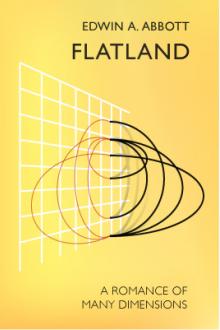Lorna Doone: A Romance of Exmoor by R. D. Blackmore (freenovel24 txt) 📗

- Author: R. D. Blackmore
Book online «Lorna Doone: A Romance of Exmoor by R. D. Blackmore (freenovel24 txt) 📗». Author R. D. Blackmore
Seeing me riding to the front (where the work of death went on among the men of true English pluck; which, when moved, no farther moves), the fugitives called out to me, in half a dozen dialects, to make no utter fool of myself; for the great guns were come, and the fight was over; all the rest was slaughter.
'Arl oop wi Moonmo',' shouted one big fellow, a miner of the Mendip hills, whose weapon was a pickaxe: 'na oose to vaight na moor. Wend thee hame, yoong mon agin.'
Upon this I stopped my horse, desiring not to be shot for nothing; and eager to aid some poor sick people, who tried to lift their arms to me. And this I did to the best of my power, though void of skill in the business; and more inclined to weep with them than to check their weeping. While I was giving a drop of cordial from my flask to one poor fellow, who sat up, while his life was ebbing, and with slow insistence urged me, when his broken voice would come, to tell his wife (whose name I knew not) something about an apple-tree, and a golden guinea stored in it, to divide among six children—in the midst of this I felt warm lips laid against my cheek quite softly, and then a little push; and behold it was a horse leaning over me! I arose in haste, and there stood Winnie, looking at me with beseeching eyes, enough to melt a heart of stone. Then seeing my attention fixed she turned her head, and glanced back sadly toward the place of battle, and gave a little wistful neigh: and then looked me full in the face again, as much as to say, 'Do you understand?' while she scraped with one hoof impatiently. If ever a horse tried hard to speak, it was Winnie at that moment. I went to her side and patted her; but that was not what she wanted. Then I offered to leap into the empty saddle; but neither did that seem good to her: for she ran away toward the part of the field at which she had been glancing back, and then turned round, and shook her mane, entreating me to follow her.
Upon this I learned from the dying man where to find his apple-tree, and promised to add another guinea to the one in store for his children; and so, commending him to God, I mounted my own horse again, and to Winnie's great delight, professed myself at her service. With her ringing silvery neigh, such as no other horse of all I ever knew could equal, she at once proclaimed her triumph, and told her master (or meant to tell, if death should not have closed his ears) that she was coming to his aid, and bringing one who might be trusted, of the higher race that kill.
A cannon-bullet (fired low, and ploughing the marsh slowly) met poor Winnie front to front; and she, being as quick as thought, lowered her nose to sniff at it. It might be a message from her master; for it made a mournful noise. But luckily for Winnie's life, a rise of wet ground took the ball, even under her very nose; and there it cut a splashy groove, missing her off hindfoot by an inch, and scattering black mud over her. It frightened me much more than Winnie; of that I am quite certain: because though I am firm enough, when it comes to a real tussle, and the heart of a fellow warms up and tells him that he must go through with it; yet I never did approve of making a cold pie of death.
Therefore, with those reckless cannons, brazen-mouthed, and bellowing, two furlongs off, or it might be more (and the more the merrier), I would have given that year's hay-crop for a bit of a hill, or a thicket of oaks, or almost even a badger's earth. People will call me a coward for this (especially when I had made up my mind, that life was not worth having without any sign of Lorna); nevertheless, I cannot help it: those were my feelings; and I set them down, because they made a mark on me. At Glen Doone I had fought, even against cannon, with some spirit and fury: but now I saw nothing to fight about; but rather in every poor doubled corpse, a good reason for not fighting. So, in cold blood riding on, and yet ashamed that a man should shrink where a horse went bravely, I cast a bitter blame upon the reckless ways of Winnie.
Nearly all were scattered now. Of the noble countrymen (armed with scythe or pickaxe, blacksmith's hammer, or fold-pitcher), who had stood their ground for hours against blazing musketry (from men whom they could not get at, by reason of the water-dyke), and then against the deadly cannon, dragged by the Bishop's horses to slaughter his own sheep; of these sturdy Englishmen, noble in their want of sense, scarce one out of four remained for the cowards to shoot down. 'Cross the rhaine,' they shouted out, 'cross the rhaine, and coom within rache:' but the other mongrel Britons, with a mongrel at their head, found it pleasanter to shoot men who could not shoot in answer, than to meet the chance of mischief from strong arms, and stronger hearts.
The last scene of this piteous play was acting, just as I rode up. Broad daylight, and upstanding sun, winnowing fog from the eastern hills, and spreading the moors with freshness; all along the dykes they shone, glistened on the willow-trunks, and touched the banks with a hoary gray. But alas! those banks were touched more deeply with a gory red, and strewn with fallen trunks, more woeful than the wreck of trees; while howling, cursing, yelling, and the loathsome reek of carnage, drowned the scent of the new-mown hay, and the carol of the lark.
Then the cavalry of the King, with their horses at full speed, dashed from either side upon the helpless mob of countrymen. A few pikes feebly levelled met them; but they shot the pikemen, drew swords, and helter-skelter leaped into the shattered and scattering mass. Right and left they hacked and hewed; I could hear the snapping of scythes beneath them, and see the flash of their sweeping swords. How it must end was plain enough, even to one like myself, who had never beheld such a battle before. But Winnie led me away to the left; and as I could not help the people, neither stop the slaughter, but found the cannon-bullets coming very rudely nigh me, I was only too glad to follow her.
CHAPTER LXV FALLING AMONG LAMBS
That faithful creature, whom I began to admire as if she were my own (which is no little thing for a man to say of another man's horse), stopped in front of a low black shed, such as we call a 'linhay.' And here she uttered a little greeting, in a subdued and softened voice, hoping to obtain an answer, such as her master was wont to give in a cheery manner. Receiving no reply, she entered; and I (who could scarce keep up with her, poor Kickums being weary) leaped from his back, and followed. There I found her sniffing gently, but with great emotion, at the body of Tom Faggus. A corpse poor Tom appeared to be, if ever there was one in this world; and I turned away, and felt unable to keep altogether from weeping. But the mare either could





Comments (0)